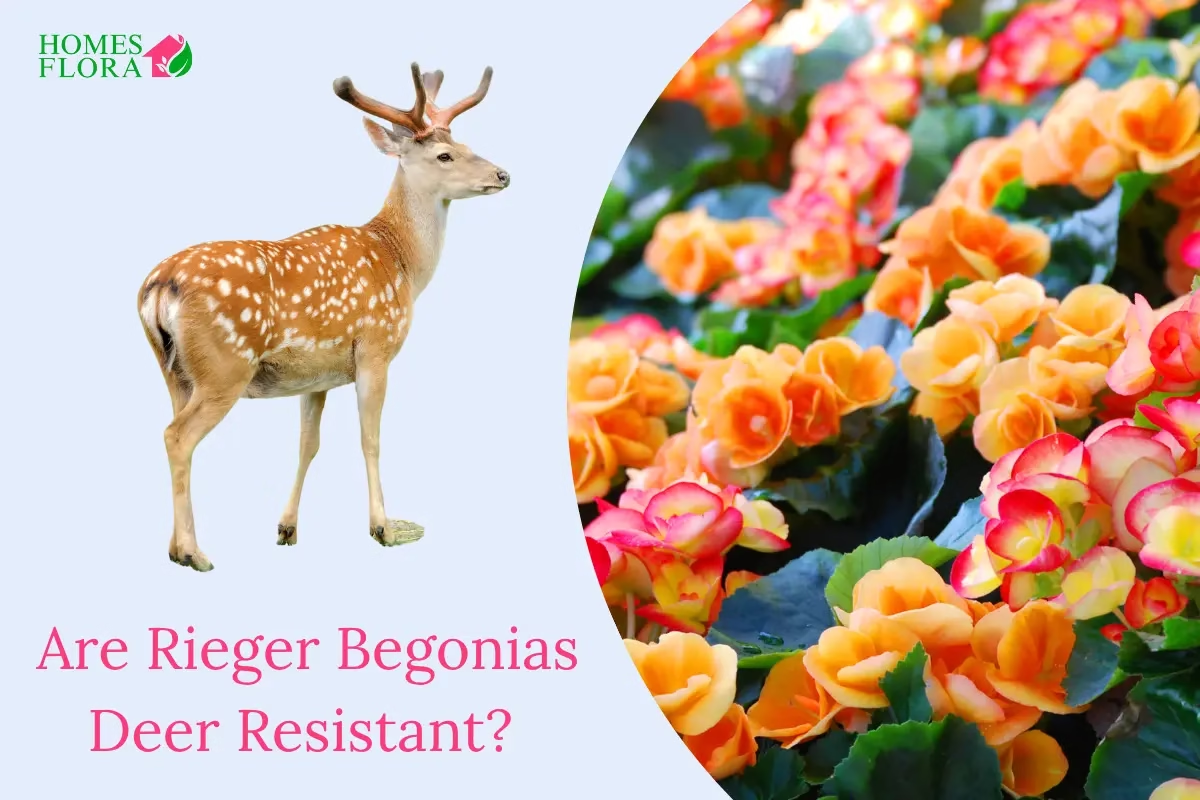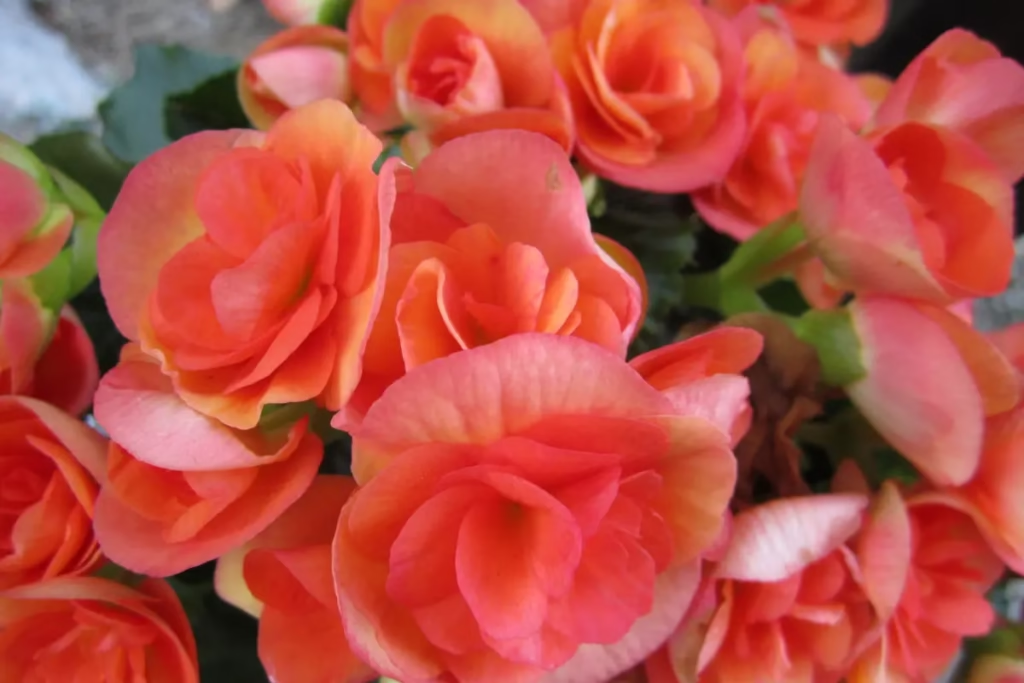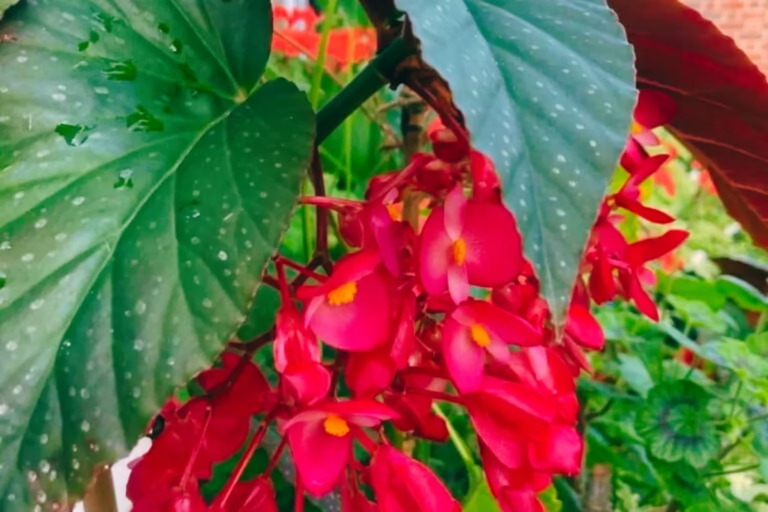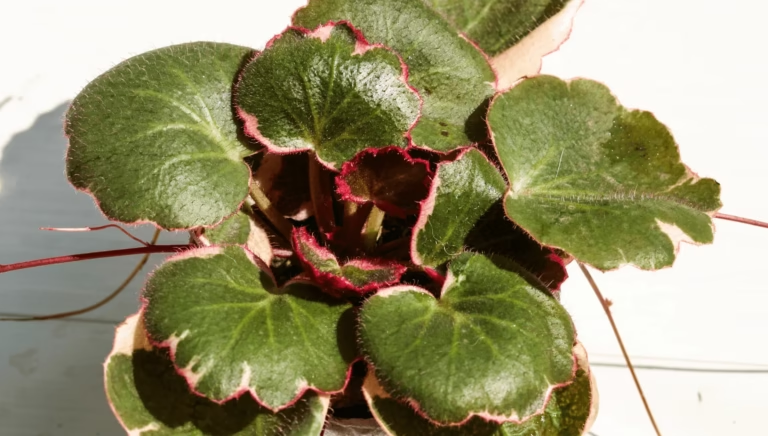Are Rieger Begonias Deer Resistant? Advice from Experience

Worried that hungry deer might destroy your Rieger Begonias overnight? You’re not alone. While these rose-like beauties bring vibrant color to shady patios and indoor corners, many gardeners wonder: Are Rieger Begonias deer resistant—Really? The answer isn’t black and white—and that’s where experience counts.
In this guide, we’ll explore whether deer eat Rieger Begonias, why they sometimes do, and how to protect your garden using gardener-tested tips. From natural deer repellents and companion planting to smart container placement, discover real-world ways to keep your begonias safe and blooming—even in deer country.
Quick Answer
Rieger Begonias are not fully deer resistant, but hanging them in baskets and surrounding them with deer-repellent plants like rosemary offers strong protection. Deer may nibble if food is scarce, so elevation and scent deterrents are key.
What is Rieger Begonias?
Begonias (also known as Elatior Begonias) are small hybrids prized for their rose-like clusters of colorful flowers. A cross between tuberous and winter-blooming begonia species, they light up shady gardens, patios and indoor spaces. From pristine white to cerise to crimson, these hardy beauties flower for months with very little fuss.

Are Rieger Begonias Really Deer Resistant?
So, are Rieger Begonias deer resistant? Here’s the honest truth: they’re not fully deer proof.
Deer don’t love begonias the way they swoon for hostas or daylilies, but hungry deer are
opportunists. If there’s not much else available, they will nibble on tender Rieger Begonias
without a second thought.
The leaves have a mild bitterness that helps a little, but unlike geraniums — which can make
deer sick in large amounts — begonias pose no threat to them.
So if you garden in deer country, don’t count on your begonias being safe just because they
sometimes get skipped over.
Why Do Deer Sometimes Eat Begonias Anyway?
Deer have simple logic: if it’s green, tender, and easy to reach, it’s fair game — especially in late summer or during droughts when natural food runs low.
Spiny roses or fragrant lavender are dry and hard compared with begonias. They’re also low to the ground, so they’re perfect for reaching to eat a midnight snack.
Begonias have been stories cause for many a gardener, who one day wakes up to discover the beloved plants have been stripped overnight to the bone by them.
So, although they’re less tempting than some plants, nothing is completely off-limits when Bambi’s hungry.
How to Protect Rieger Begonias From Hungry Deer
Don’t panic — you can keep your colorful begonias safe with a few clever tricks. Here’s how
smart gardeners outwit deer:
Use Hanging Baskets and Window Boxes
One of the easiest ways to keep deer away is to lift your begonias out of their reach. Rieger
Begonias thrive in hanging baskets — on a porch, a sturdy shepherd’s hook, or even from tree
branches. Window boxes are another winner, especially on a second story or high balcony. Deer rarely jump that high for a snack when easier meals are available.
Plant Them With Deer-Repellent Companions
You can create a natural “living fence” around your begonias by surrounding them with plants
deer dislike. Good choices include:
Combining plants this way helps mask the tempting scent of your begonias.
Try Simple Barriers and Fencing
When in doubt, block access. For container gardens, lightweight mesh domes or cloches keep deer at bay overnight. For beds, a low chicken wire fence can make deer think twice. For serious problems, a taller fence (around 8 feet) is the most reliable option — deer are impressive jumpers!
Use Safe Deer Repellents
Many gardeners swear by natural repellents made from garlic, eggs, or spicy oils. These make
your begonias taste terrible without harming the plants or wildlife. Rotate brands or recipes every few weeks so deer don’t get used to one smell. Always reapply after rain for best results.
Related: Strawberry Begonia: The Ultimate Guide to Buy and Care
Simple Ways to Overwinter Rieger Begonias
Most folks don’t realize this, but Rieger Begonias aren’t really annuals — they’re subtropical perennials. Trouble is, they don’t grow tubers to stash energy like tuberous types do. So, if you leave them outside when frost hits, they’re toast. Hate tossing good plants every fall? I sure do. Here’s what works for me:
Bit of fuss now, but come spring, you’ll have fresh blooms without buying new ones every single year.
Real Gardener Tip
When Rieger Begonias are placed in hanging baskets on high hooks and rosemary is planted around the base, deer damage is significantly reduced. This simple combination has proven effective in keeping deer away.
Care Tips for Thriving Rieger Begonias
Healthy, well-tended plants bounce back faster — even if they do get nibbled. Here’s how to
keep yours at their best:
Are Rieger Begonias Worth It?
Rieger Begonias aren’t totally deer-proof, but with a few smart tricks, you can enjoy them
without worry — even if deer roam your yard. Hang them up high, tuck in some deer-repelling plants, or use a simple barrier. They’re just too pretty to give up on — don’t let a hungry deer ruin your flowers!
Ready to Grow Happier Begonias?
Have you battled deer in your garden before? Share your best tips in the comments below —
you might just save another gardener’s flowers! If this guide helped, share it with your plant-loving friends and family members.


